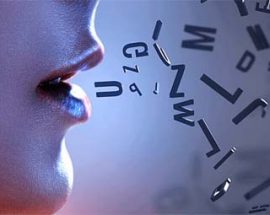-

Bilingualism, language processing, learning and recovery
Description Language is a highly complex, structured and dynamic system of multiple elements that unfold sequentially over time, complex rules that govern them, and arbitrary relationships that define the links between different representational... More reading
Claudia Peñaloza
-

The impact of neurological conditions on brain function and connectivity
How neurological conditions impact brain function and connectivity? In our group we are interested in how a brain disease modifies brain structure and how these changes can further translate into cognitive function, language and behavior. We... More reading
Joanna Sierpowska
-

Neurolinguistics, Multilingualism and Cognition (Neuromultico)
The core set of research topics at Neurolinguistics, Multilingualism and Cognition (Neuromultico) revolves around the bilingual mind. Our questions are based on the coexistence of multiple languages in the brain and the implications of this... More reading
Mireia Hernández Pardo
-

Dynamics of memory formation
We want to understand how experiences are initially encoded, undergo further consolidation and are later retrieved. We use behavioural (including Eye movements), psychophysiological (Skin Conductance) and neural (fMRI, EEG, iEEG) measures to help us... More reading
Lluís Fuentemilla Garriga
-

Learning and Brain Plasticity
One of the most relevant aspects in neuroscience is to identify brain regions responsible of cognitive and emotional processes in humans, in healthy as well as people suffering from mental diseases, and to characterize their functional role. In this... More reading
Antoni Rodríguez-Fornells
-

Diffusion MRI and brain connectivity
The relationship between brain function (“how the brain works”) and structure (“how the brain is composed and how it is connected”) is a fundamental question in cognitive neuroscience. We study how functional and structural information is... More reading
Estela Càmara Mancha
-

Learning from Reward
In our everyday live we adapt our behavior on the bases of the results of our actions. Therefore, we repeat those actions that have yielded to a positive outcome or a reward and avoid those actions that lead to negative consequences or punishments.... More reading
-

Brain Mechanisms of Language Learning
Language is the most amazing skill that humans possess. It allows social interaction, can make us cry, laugh and transmit our most complex thoughts. Comprehending the cognitive processes involved in language learning is of critical importance for... More reading
Ruth de Diego-Balaguer